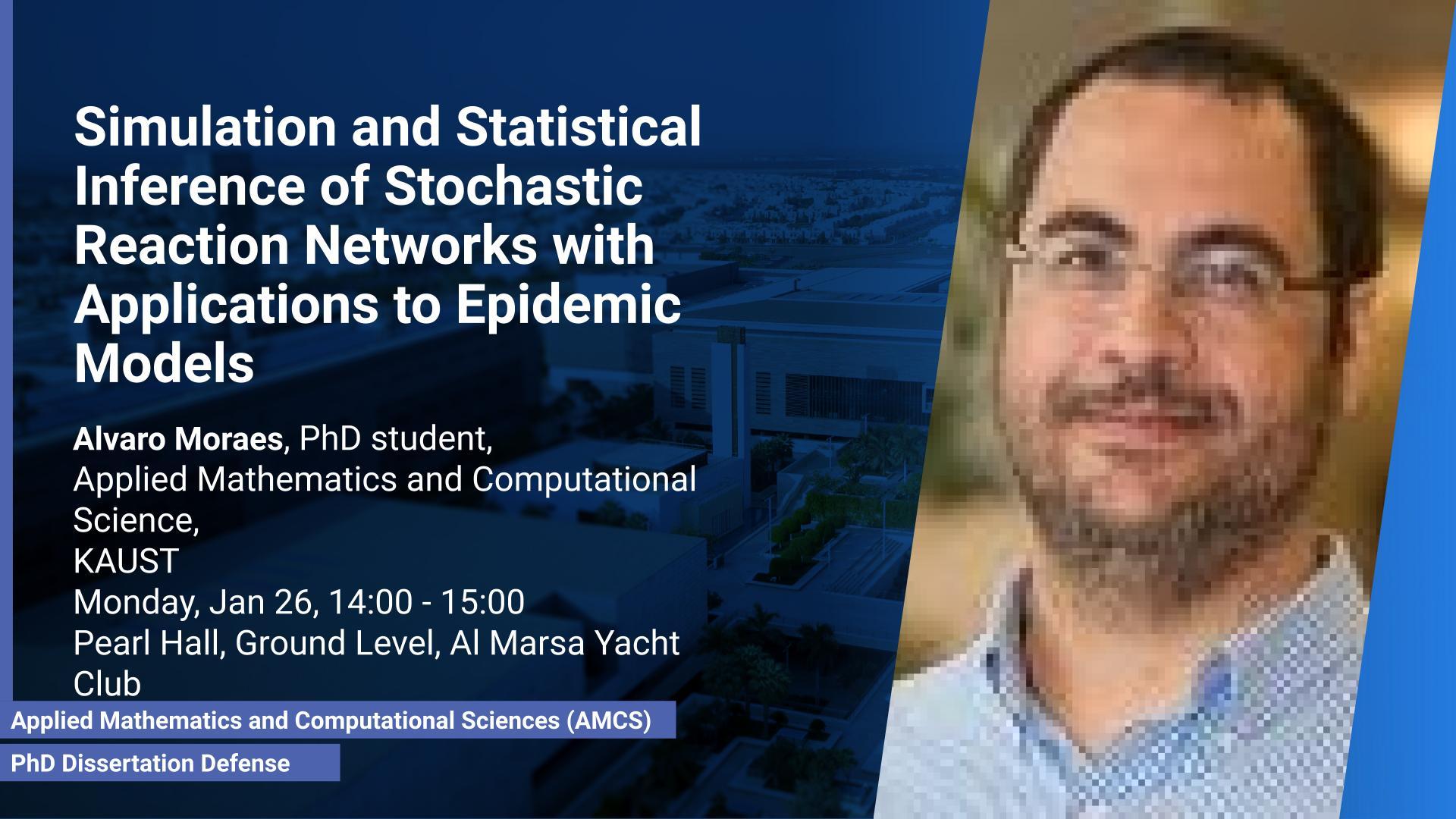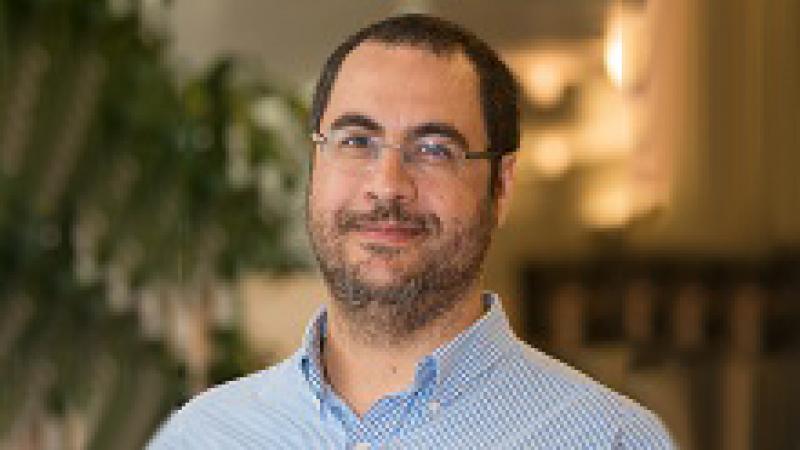Event Start
Event End
Location
Abstract
Markovian epidemic models are stochastic models belonging to a wide class of pure jump processes known as Stochastic Reaction Networks (SRNs) that have been mainly developed to model biochemical reactions. SRNs also have applications in neural networks, virus kinetics, and dynamics of social networks, among others.
This PhD thesis is focused on novel fast simulation algorithms and statistical inference methods for SRNs.
Our novel Multi-level Monte Carlo (MLMC) hybrid simulation algorithms provide accurate estimates of expected values of a given observable of SRNs at a prescribed final time. They are designed to control the global approximation error up to a user-selected accuracy and up to a certain confidence level, and with near optimal computational work.
Regarding the statistical inference aspect, we first mention an innovative multi-scale approach, where we introduce a deterministic systematic way of using up-scaled likelihoods for parameter estimation while the statistical fittings are done in the base model through the use of the Master Equation. In a different approach, we derive a new forward-reverse representation for simulating stochastic bridges between consecutive observations. This allows us to use the well-known EM Algorithm to infer the reaction rates.
Brief Biography
Alvaro Moraes is a PhD Candidate in Applied Math and Computational Science at KAUST working with Prof. Raúl Tempone. He is a member of the KAUST SRI-Center of Uncertainty Quantification and the KAUST Stochastic-Numerics research group. Alvaro obtained his B.Sc. in Statistics form the University of the Republic, Uruguay, in November 2008. After joining KAUST, he was twice a visiting summer student at Oak Ridge National Lab (ORNL) in Tennessee, USA. During those two visits he worked on numerical methods for multiscale modeling of epidemic diseases. Later, in Summer 2014, Alvaro was an invited lecturer at the Mathematical and Theoretical Biology Institute (MTBI) at Arizona State University for their summer training program. He is currently a recipient of the KAUST Excellence Academic Award. His PhD thesis research focused on developing fast and accurate computational methods for i) computing quantities related to complex stochastic reaction networks and ii) solving related inverse problems. He has two publications in the SIAM journal of Multiscale Modeling and Simulation.

